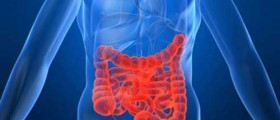
Introduction
Crohn's disease is an inflammatory disease that affects the parts of bowels, and if untreated properly, it can lead to serious cases of strong abdominal pain, diarrhea and even malnutrition. When a patient does not respond well to medications, or there is a serous complication in development of the disease, surgery is performed in almost 60% of cases.
Problem is that Crohn’s disease can not be cured surgically. It affects stomach, colons or small intestines, and even if the affected portions are surgically removed, inflammation can still reappear.
Causes of Crohn's disease
Real causes of Crohn's disease are still unknown; at one point, diet and stress were hold responsible for Crohn's disease, but it is now known that many factors can attribute to development of this disorder, or aggravate already existing disease. Now it is believed that hereditary factors (hereditary mutating genes found in the people with Crohn's disease), or disorder in the immune system functions (in cases when immune systems attacks virus or bacteria, causing inflammation) may be responsible.
Symptoms of Crohn's disease
Symptoms of Crohn's disease may appear suddenly, and be very strong. Some of these symptoms may be appetite loss or reduced appetite, diarrhea, fatigue, fever, skin disorder, ulcers and ulcerative colitis, abdominal cramping and pain, arthritis, eye inflammation, ulcers on the surface of the intestine, etc.
Complications of Crohn's disease
In cases of Crohn's disease many complications are possible, and some of them may be open sores or ulcers, malnutrition, diarrhea, abdominal pain, blockage or obstruction of intestines, excessive bleeding in the intestine, bowel perforation or obstruction, appearance of abscess of fistulas, anal fissures, etc.
Surgery and Treatments of Crohn's disease
Depending of progress of illness, seriousness of complication and location of disease in the intestines, appropriate surgical procedures may be performed. After the surgery your doctor will prescribe various medications, in order to minimize chances of Crohn’s disease recurrence or colon cancer. Such medications may be immunosuppressors like inflixmab, azathioprines, mercaptopurines or others and immunomodulators or 5-ASA agents.
Only combination of appropriate surgical procedure, post operative treatment and appropriate medicaments can give you a chance to recover fully and to lead a normal life. You should also to introduce stress management on yourself, and although stress does not produce Crohn's disease, it can make many gastrointestinal problems, which can enhance your Crohn's disease’s symptoms.
You should also change your daily diet and use more of high fiber and low-fat food, eat more fruits, and drink more liquids.

















Your thoughts on this
Loading...